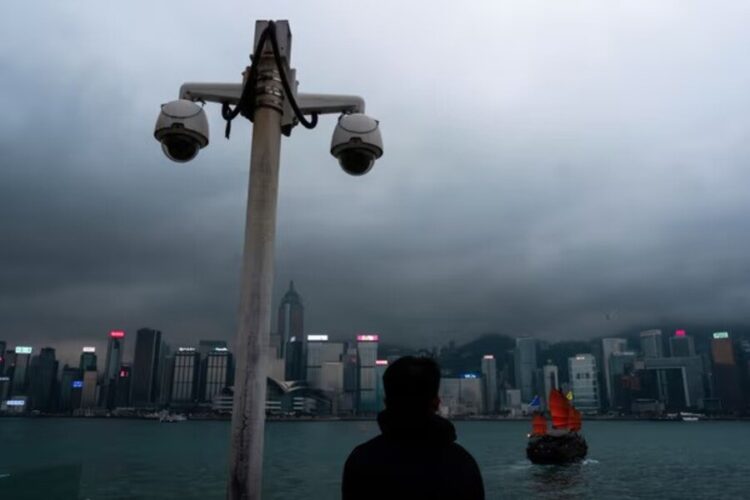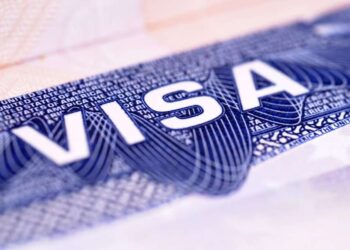In the bustling metropolis of Hong Kong, a city once heralded as a bastion of press freedom and a bridge between East and West, a significant chapter in the annals of journalistic liberty quietly concluded. Radio Free Asia (RFA), a beacon of independent reporting funded by the United States government, shuttered its Hong Kong bureau.
This closure is not merely an administrative footnote but a profound indicator of the shrinking space for the free press under the shadow of the newly enacted national security legislation known as Article 23. RFA’s decision, borne out of acute safety concerns for its staff and the existential threats posed by the sweeping powers of the law, marks a dark day for the enclave’s once-vibrant media landscape.
The enactment of Article 23, heralded by authorities as a necessary measure to safeguard national security, has instead been perceived as a draconian tool to stifle dissent, silence critical voices, and erode the foundational pillars of freedom that Hong Kong was known for.
This move by RFA underscores a grave warning: the operational safety and the very essence of press freedom in Hong Kong are under siege, signaling a chilling effect that resonates far beyond its shores, in stark contrast to the city’s celebrated legacy of journalistic independence.
Background on Radio Free Asia
Since its inception in 1996, Radio Free Asia (RFA) has stood as a pillar of journalistic integrity and an unwavering advocate for the free press in the shadow of regimes that often suppress dissenting voices. Established by the United States Congress, RFA was tasked with a mission both noble and challenging: to provide accurate and uncensored news to audiences in Asian countries where such freedoms were curtailed or nonexistent.
In Hong Kong, a city that transitioned from British to Chinese rule a year after RFA’s founding, the broadcaster became a symbol of the open exchange of ideas, serving as a critical source of information in a region increasingly marked by censorship and governmental control over media narratives.
RFA’s significance in Hong Kong transcended the mere dissemination of news; it embodied the city’s unique position as a hub where the East meets the West, freedom of speech is protected, and the press can operate without fear. Through its broadcasts and online presence, RFA offered an independent perspective on local and regional issues, championing the rights of the underrepresented and holding power to account.
Its role in promoting a free press was not just about offering alternative news sources to the people of Hong Kong but about reinforcing the very values that are essential for a vibrant, democratic society. As such, RFA’s presence in Hong Kong since 1996 has been a testament to the enduring struggle for freedom of expression and the importance of uncensored journalism in safeguarding democracy and human rights.
Details of Article 23
Article 23 of Hong Kong’s Basic Law, enacted amidst a storm of controversy and concern, has marked a pivotal moment in the city’s ongoing narrative of autonomy and freedom. This legislation, fervently advocated by both the Hong Kong government and Beijing, aims to fortify national security measures, addressing a spectrum of offenses from treason and sedition to subversion and secession. The law’s architects argue its necessity stems from the urgent need to quell unrest and maintain societal order, positing it as a cornerstone for the city’s stability and prosperity in the aftermath of the pro-democracy protests of 2019.
However, the law’s broad and vaguely defined provisions have ignited significant alarm among journalists, human rights activists, and international observers. Critics argue that Article 23, with its sweeping authority to penalize acts perceived as threats to national security, poses a grave risk to the freedom of expression and the press.
They highlight how the law’s ambiguous language could be exploited to suppress dissenting voices, criminalize critical reporting, and dismantle the pillars of a free and independent media that Hong Kong has long been renowned for.
The stark contrast between the government’s assurances of safeguarding national security and the palpable fear among the press and public defenders of free speech underscores the deep divisions over the law’s impact on Hong Kong’s cherished freedoms.
These concerns are amplified by the severe penalties prescribed, ranging from hefty fines to life imprisonment, further exacerbating fears of an authoritarian tilt in governance and a concomitant erosion of civil liberties.
Stakeholder Reactions
The closure of Radio Free Asia’s Hong Kong bureau elicited a broad spectrum of reactions, underscoring the global concern and contentious nature of Article 23. Bay Fang, RFA’s president, expressed a profound unease, stating, “The environment under Article 23 has made it impossible for us to ensure the safety of our staff, leading us to this difficult decision.” This sentiment of apprehension is echoed by the U.S. government, with the State Department voicing its alarm: “We are deeply troubled by the implications of Article 23 for press freedom in Hong Kong, reflecting a further erosion of the autonomy promised under the ‘One Country, Two Systems’ framework.”
International human rights organizations have also been vocal in their criticism. Amnesty International remarked, “Article 23 poses a grave threat to freedom of expression in Hong Kong, potentially stifling critical voices and media under the guise of national security.” Conversely, the Hong Kong government staunchly defends the legislation.
A government spokesperson argued, “Article 23 is essential for the stability and prosperity of Hong Kong, targeting only those who pose a genuine threat to national security. Claims that the law will be used to suppress the media and dissenting voices are unfounded and reflect a misunderstanding of its intentions.”
These varied responses illuminate the deep divisions and heightened tensions surrounding the law, revealing the complexity of balancing national security concerns with the preservation of fundamental freedoms.
Impact on Press Freedom
The closure of Radio Free Asia’s Hong Kong bureau under the cloud of Article 23 signals a troubling contraction of press freedom in a city once lauded for its vibrant media landscape. This event is part of a broader pattern of tightening controls over the press, evidenced by the shutdown of other critical media voices like Apple Daily and Stand News, following raids and arrests under national security grounds.
These actions not only stifle dissent but also send a chilling message to journalists and media outlets about the narrowing limits of permissible speech and reporting. This trend in Hong Kong reflects a concerning global shift towards increased media suppression and control, challenging the international community to respond and reaffirm the fundamental principles of freedom of expression and press freedom.
International Response
The international community has responded with concern and condemnation towards the shrinking press freedoms in Hong Kong, particularly following the enactment of Article 23 and the closure of RFA’s bureau.
The United States, highlighting its disapproval, has imposed visa restrictions on Hong Kong officials believed to be responsible for undermining the city’s autonomy and freedoms. Furthermore, global forums and leaders have called for heightened international pressure on both Beijing and Hong Kong authorities to uphold press freedoms and reverse the encroaching restrictions.
These actions underscore a growing consensus on the need for a collective and robust defense of media freedoms, viewing the situation in Hong Kong as a litmus test for the international community’s willingness and ability to safeguard journalistic integrity and freedom of expression against rising authoritarianism.










